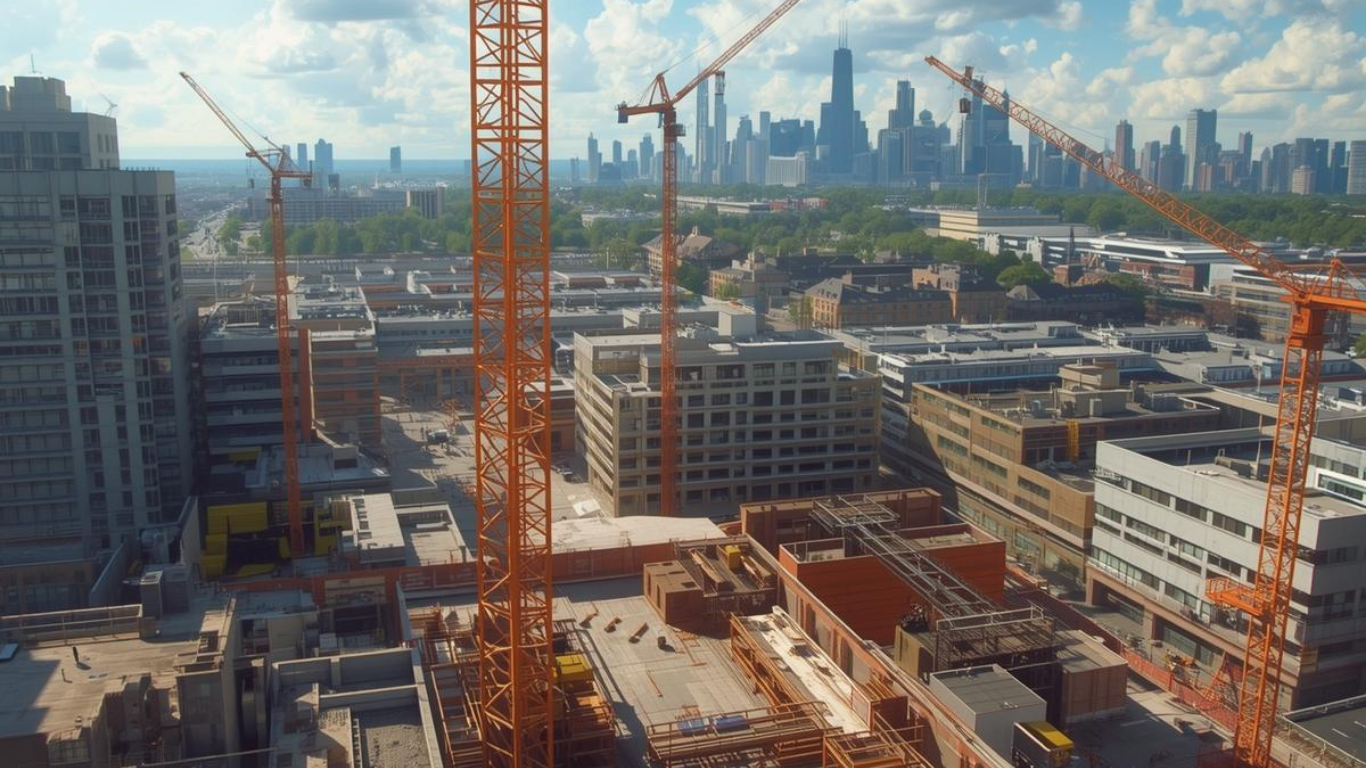How to Budget for a Home Renovation: A Step-by-Step Guide
Home renovations should be exciting, not stressful. But we all know how quickly costs can add up when you're not prepared. We've been helping Chicago families renovate their homes for 20+ years. One lesson stands out: planning properly saves time, money, and stress.
You know those renovation nightmares everyone talks about? The kitchen ended up costing twice the original estimate. The bathroom project that somehow took six months instead of six weeks. These situations usually happen when people jump into renovations without a clear budget. The truth is, with proper planning, you can avoid most of these headaches.
It doesn't matter if you're just updating one room or redoing your entire house. A solid budget helps you:
- Stay in control of your spending
- Avoid unpleasant financial surprises
- Get the results you actually want
- Keep your project on schedule
In this guide, we'll share the same budgeting approach we use with our own clients. We'll help you plan your costs, focus on what matters most, and prepare for any surprises along the way. First things first—why is a budget so important for renovations?
Why Your Renovation Budget Needs to Be Realistic
Let's talk numbers for a second. About half of all home renovations end up costing more than people planned. That's not meant to scare you—it's just the reality of remodeling. But here's the good news: when you plan your budget carefully from the start, you get three big advantages:
- No money surprises - You'll sleep better knowing exactly what you're spending
- Smarter spending - You can focus on the projects that matter most to you
- Better results - Your money goes further when every dollar is planned
Think of your budget like a roadmap. You wouldn't start a road trip without knowing your route, right? The same goes for renovations. A solid budget keeps your project on track and your stress levels low.
What Really Affects Your Renovation Budget
Renovation costs can vary wildly—not because of magic, but because of a few key factors. Here’s what actually moves the needle on your budget:
1. Scope of Work: Surface-Level vs. Major Changes
A fresh coat of paint? Maybe $3,000. Knocking down walls or fixing a foundation? That’s a different story.
Tip: Cosmetic updates (paint, fixtures) cost less but deliver quick visual impact. Structural work (plumbing, electrical) is pricier but often unavoidable.
2. Material Choices: Where to Save and Splurge
That $5/sq ft tile looks similar to the $50/sq ft option—until you look closely.
Chicago example:
- Basic laminate countertops: ~$1,500
- Quartz or granite: $4,000+
Smart move: Mix high-impact splurges (like countertops) with budget-friendly basics.
3. Labor Costs: Why Hiring Cheap Can Cost More
In Chicago, licensed contractors charge $70–$120/hour. Unlicensed crews might quote half that—but if something goes wrong, you’re on the hook.
Red flag: No proof of insurance or local licenses.
4. Chicago Permits: Don’t Skip This Step
Adding electrical? Moving plumbing? The city requires permits, and fines for skipping them can exceed $10,000.
Time saver: Taty handles permit paperwork for clients.
5. The “Oh No” Fund (a.k.a. Contingency)
Even with perfect planning, 80% of renovations hit surprises. Setting aside 10–20% extra means you won’t panic when you find:
- Outdated wiring behind walls
- Water damage under floors
- “Wait, that’s not up to code…”
Your Renovation Budget: A Stress-Free Plan in 5 Steps
Step 1: Figure Out What You Really Need
Before looking at paint colors or tile samples, ask:
- Must-haves: Roof leaking? HVAC broken? Fix these first.
- Nice-to-haves: Dream kitchen can wait if the basement floods.
Step 2: Know Your Local Costs
Chicago prices aren’t guesses—they’re predictable. Here’s what to expect:
- Kitchen Remodel: $25,000 – $50,000
- Bathroom Update: $10,000 – $30,000
- New Flooring: $3 – $12/sq ft
Remember: These are averages. Your home might need more (or less!).
Step 3: Compare Contractor Quotes—the Right Way
Getting 3+ bids is standard, but how do you pick?
- Check licenses: Illinois requires GCs to be licensed.
- Visit past projects: Photos don’t show craftsmanship.
- Ask about timelines: A cheap bid with a 6-month wait isn’t a deal. We make it easy: Taty offers free, no-pressure estimates with line-item breakdowns.
Step 4: Plan for the "Uh-Oh" Moments
Two truths about old Chicago homes:
- They’re full of character (great!).
- They’re full of surprises (not great). Budget extra for:
- Hidden issues: Knob-and-tube wiring, asbestos, or rotten subfloors.
- Living costs: If redoing your kitchen, factor in takeout meals.
Step 5: Save for the Unexpected
A Lincoln Park client found water damage mid-renovation. Because they’d set aside 15% extra:
- No frantic loans
- No paused construction
- Just a fixed wall and back on schedule
Smart Ways to Stretch Your Renovation Budget
You don’t need a magic wand to make your renovation dollars go further—just a few clever strategies. Start by looking for opportunities to refresh rather than replace.Those kitchen cabinets from the 90s? They might still have good bones. A fresh coat of paint and new hardware can give them modern style for a fraction of replacement costs.
We've seen Chicago homeowners save $5,000 or more just by refinishing instead of buying all-new cabinets. Local salvage shops are also goldmines for quality materials at a fraction of the cost.
If your wish list is longer than your budget, consider phasing your projects. We’ve helped clients tackle essential repairs first like leaky roofs or outdated wiring. Then circle back later for cosmetic upgrades. This approach keeps your home livable while spreading out expenses over time.
While DIY can save money, be strategic about what you take on. Save painting and demo for DIY, but leave electrical, plumbing, and structural work to Chicago-licensed pros. It's safer and meets code. We’ve seen homeowners save a few thousand on DIY painting only to spend far more fixing improper wiring jobs.
Renovation Budget Pitfalls to Avoid
Even with careful planning, these three mistakes can derail your project:
- Rushing the Timeline Renovations almost always take longer than expected. Padding your schedule by 15-20% helps avoid rushed (and costly) decisions when delays happen.
- Hiring Based on Price Alone That suspiciously low bid often means inexperience or cutting corners. One client saved $5K upfront but paid $12K later fixing plumbing leaks.
- Skipping Permit Research Chicago doesn't play nice with unpermitted work. Fines start at $500 and can exceed $10K for electrical/structural changes. Always check with the city first.
Knowing When to Call in the Professionals
Some renovation projects simply work better with expert guidance. You'll likely want professional help for:
- Structural changes like moving load-bearing walls
- Whole-home or multi-room renovations
- Any work requiring Chicago permits (electrical, plumbing, etc.)
- Custom designs or high-end finishes
If your project involves any of these, we're happy to provide a free consultation. Together, we can create a plan that brings your vision to life while staying on budget.
Your Renovation Budget Questions Answered
Here are answers to common questions we hear from Chicago homeowners:
What’s the typical cost per square foot for renovations here?
In Chicago, mid-range renovations average $100–$250/sq ft. Kitchens and baths often cost more due to plumbing and finishes.
What financing options exist?
We partner with trusted local lenders who offer competitive rates for qualified homeowners.
What’s the best way to track spending?
Try:
- A simple spreadsheet with columns for estimated/actual costs
- Apps like Houzz or HomeZada
- Setting up a separate renovation account
Ready to Make Your Renovation a Reality?
You've got the knowledge – now let's put it to work. Our team brings:
- BBB Accredited reliability
- 20+ years of Chicago renovation experience
- Transparent pricing with no surprises
Get started with confidence – request your free, personalized quote today. We'll help you understand exactly what to expect before the first hammer swings.




